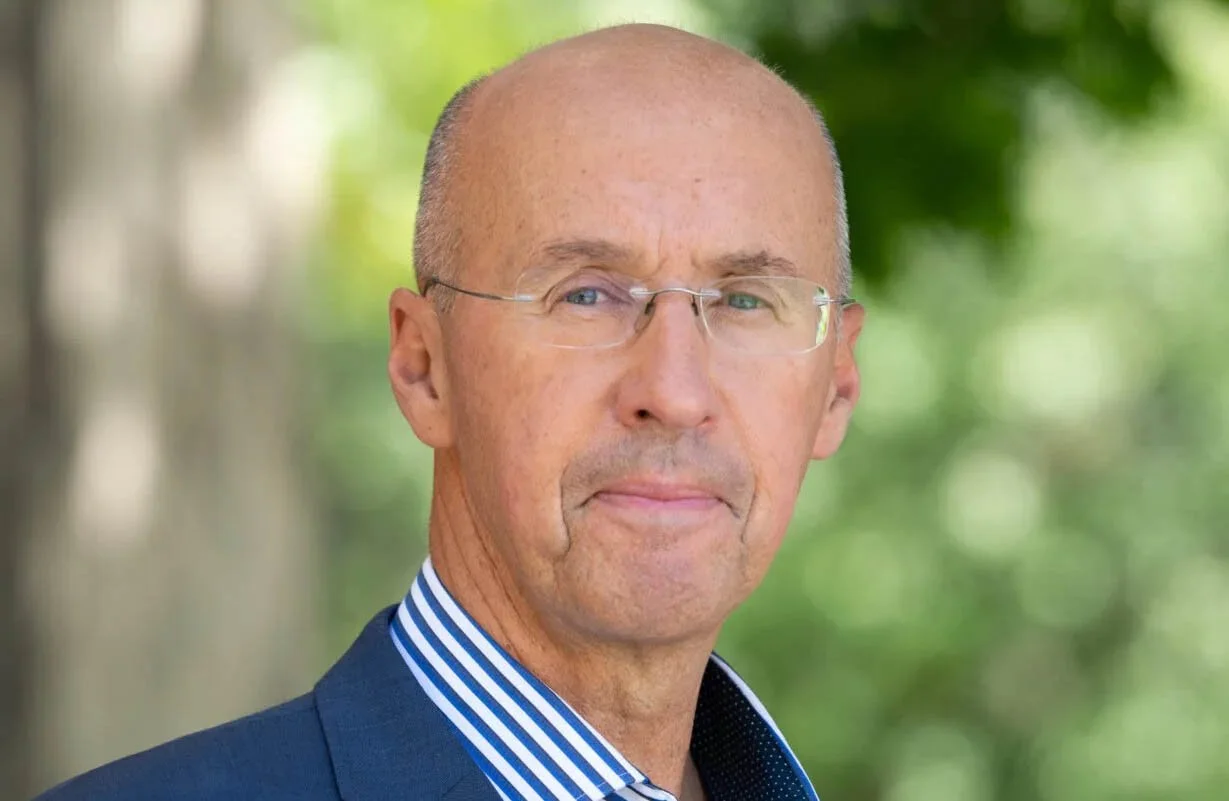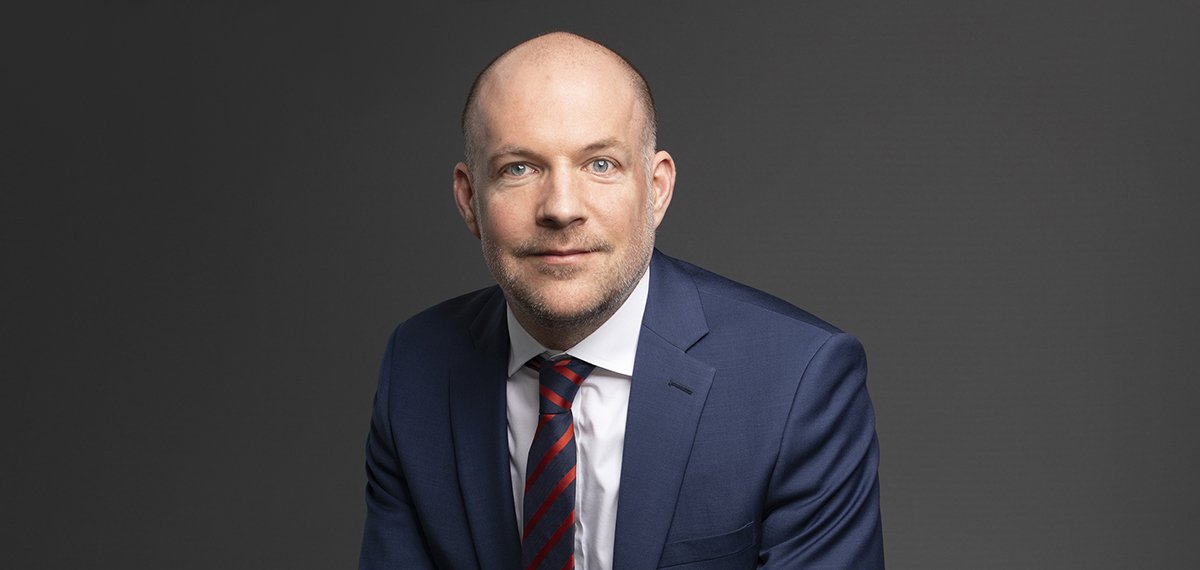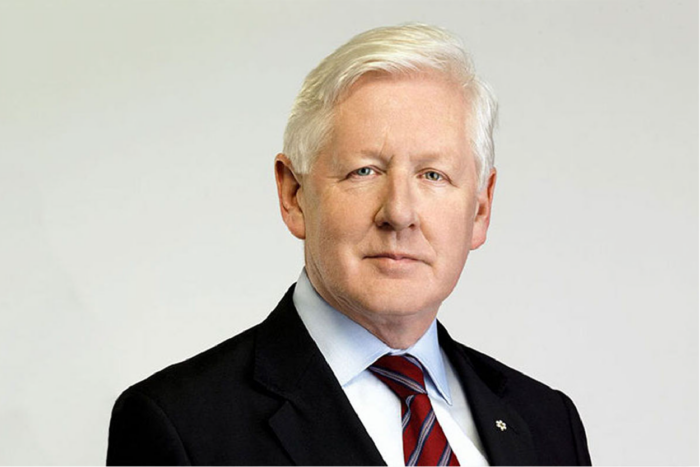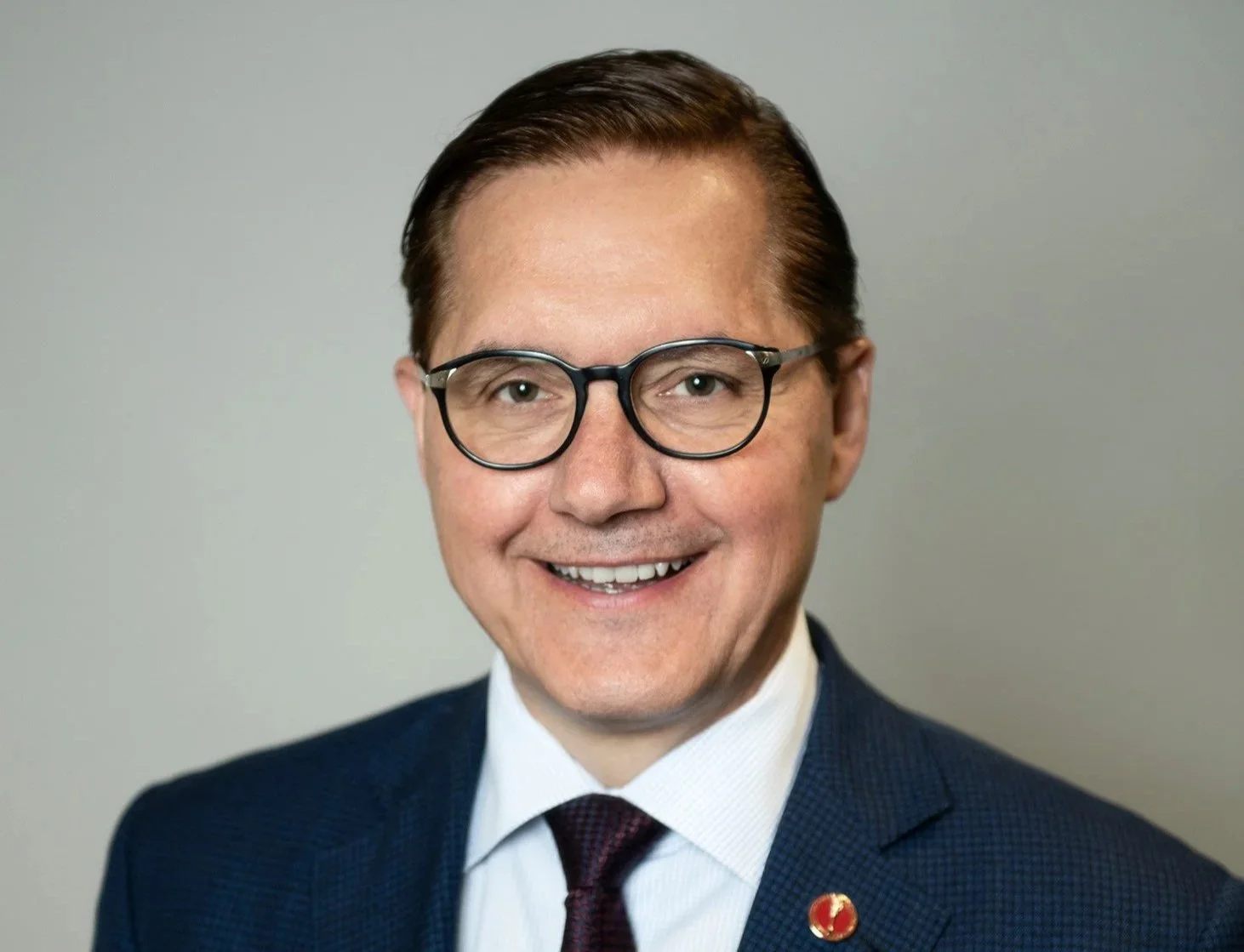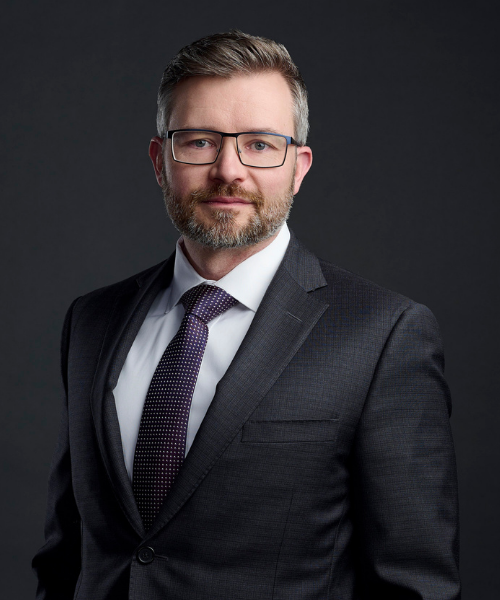This is the calm before the storm: Page
‘I think we're headed for hard times. This is not just a Canadian economy issue — it's the global economy. There's enormous uncertainty that's going to lead to a lot of volatility,’ says Institute of Fiscal Studies and Democracy president and CEO Kevin Page. / Institute of Fiscal Studies and Democracy photo
As Canadians brace for growing economic uncertainty, fuelled by a trade war and geopolitical issues, Institute of Fiscal Studies and Democracy president and CEO Kevin Page says the current moment feels like “the calm before the storm.”
In a conversation with Means & Ways, Page offers an assessment of Canada’s economic outlook, warning of global volatility, rising national security demands and difficult fiscal decisions on the horizon. With inflation still simmering, defence spending set to surge and productivity growth lagging, Page says policymakers and citizens alike need to prepare for hard times ahead.
“There’s enormous uncertainty that’s going to lead to a lot of volatility,” the former Parliamentary Budget Officer says. “We’re at the start — still the calm part of the start — but the economy is going sideways.”
Page speaks candidly about the pressures facing Prime Minister Mark Carney’s government, the implications of global trade wars and the likelihood that the size of government will need to grow to meet rising security and social needs. He also reflects on Canada’s fiscal transparency, political leadership and what’s keeping him up at night.
Context for change
“We haven't taken significant steps yet. We’ll see more roll out over the fall. But I think Carney is creating the context for change. Even talking to people over the [summer] holidays — at coffee shops, with friends and family — there’s a sense he's having a positive impact by trying to unify people,” he says. “That kind of federal-provincial-business collaboration, we haven’t seen since Prime Minister Mulroney. We need to diversify, build new relationships. That doesn’t happen quickly, but it’s necessary.”
The Q&A was edited for length and clarity.
M&W: What do you think of the state of the economy right now, in general? How would you describe it?
KP: I feel it's a bit of a calm before the storm.
MW: So you think it's going to get worse?
KP: I think we're headed for hard times. This is not just a Canadian economy issue — it's the global economy. There's enormous uncertainty that's going to lead to a lot of volatility. More of a best-case scenario — or maybe a planning scenario — is that there’s resilience in some economies. Every day, we’re getting new data, CPI from the U.S., price data from Canada, GDP, etc. But I really feel it’s the calm before the storm. … We have to prepare people for what’s coming. It’s going to get difficult.
M&W: How has the trade war affected our economy so far?
KP: Even though we don't have a lot of data, you can see that the uncertainty associated with the trade war is slowing down consumption, investment and trade in Canada. Looking at the labour force, we're not creating a lot of jobs. On the trade side, you can see immediate weakness. I think we're effectively at the start of a recession — we're going sideways.
M&W: What can the government do to head off a recession?
KP: People are building models to capture the trade impacts globally, but I’m not hearing anything convincing about how to manage all this uncertainty, these almost weekly or daily tariffs, are they going to go this way or that way.
What Prime Minister Carney is doing to address the uncertainty is trying to bring the country together: meetings not just with Cabinet, but with premiers and territorial leaders, with Indigenous leaders, Team Canada style, business people in certain sectors.
He's having some positive impact in terms of just bringing people together, you know, because we haven't done a lot of that. You'd have to go back to almost Prime Minister Mulroney, when there was a lot of federal, provincial, business relationships.
We have to protect the Canadian economy. That's not easy. That doesn't happen quickly. We're in for difficult times. [Prime Minister Carney] is doing what he can to create the context for change and to deal with the uncertainty.
M&W: Is it possible to take on both the trade war and new defence spending commitments?
KP: We have no choice. We have to. We're going to have to work together in a way we probably haven't had to before to deal with this global environment that we live in that is very volatile, very uncertain.
“We have to protect the Canadian economy. That’s not easy. That doesn’t happen quickly. We’re in for difficult times. ”
M&W: Does it matter then if we balance the operating budget like the government wants to do?
KP: It matters. It's really important to have some version of some fiscal targets, fiscal rules, some budgetary constraints. And it matters for bond rating agencies.
Once you start telling people these are fiscal targets and fiscal rules, then you're going to have to try. You're going to have to take measures to live up to them.
M&W: Back in May, you said Canadians need to see the government’s finances. Do you still think that’s necessary, even with all the uncertainty?
KP: I was a bureaucrat for three decades. I put in lots of time in Finance and Treasury and PCO. There are always excuses for not putting out numbers. ‘We can't do this because it's not worth the paper it’s printed on, the assumptions could change tomorrow.’
Prime Minister Carney has already implemented some of his agenda. It would have been useful to put out even just a short term document, which would be like, ‘For 2025-26 here's where we think the fiscal position is going to be for the budget come the fall. Here's where we think we're at in terms of the deficit.’ You're undermining Parliament without putting out some document.
You know, other chartered banks put out numbers. PBO puts up numbers. So if other people can put out numbers, including the central bank, Department of Finance, Minister of Finance, Prime Minister Carney can put out a document. But I also understand. It’s strange times.
M&W: You wrote in the Toronto Star “the size of government will likely have to grow to levels we have not seen since the early 1980s if we are to maintain our social security system.” But they’re talking about cuts — is that a bad idea?
KP: The cuts are really about reallocation, mainly toward national security.
We can learn a lot from Scandinavian economies. They have high standards of living with pretty good social programs, and they're a very productive kind of economy. So if we maintain that, and we start moving to these higher NATO targets, say, three and a half percent, core military, 5% when you add an infrastructure component, that means a bigger government. We're going to have to, we're going to have to, it's good to get public servants, ministers, cabinets, talking about reallocation. I don't think we've been honest about how difficult that's going to be, but we're going to have to go as deep as we can.
These are stressful national security times, and if Canada is going to be pivoting away from the United States because the U.S. is backing off, which is going to create a lot of volatility in the global economy, then building these sorts of relationships with other partners, particularly Europe, but others as well, Southeast Asia, India, China — things are hard to predict right now, but we're going to have a bigger government, we're going to have to raise more revenue, not just growth, but probably through tax rates. And yeah, we're going to need the reallocation. And not the reallocation — the $30 billion that they talked about in the platform over four years — but something much bigger.
M&W: You also wrote, “We will need to grow the economy at a higher rate to generate more revenues and increase productivity.” A lot of people and organizations are also calling for more growth and productivity, but how do we do it? If you were prime minister, what’s the one thing you would do to boost our productivity?
KP: Prime Minister Carney before he was prime minister, in his book Values, he kind of sees real opportunities of productivity growth — probably like a lot of economists do — through technology. So you need to make investments in that area. He often talks about three areas.
One is AI, for sure, as an area where there's great potential to push activity across all economies. It doesn't mean to say there's not going to be disruption. There will be massive disruption, but you can create wealth through investments in those sorts of technologies.
Another topic he talks about is biotechnology, where, again, you have real growth potential.
And the third area he talks about is usually something around energy transition. Who knows? It could be small nuclear reactors. It could be more investment retooling the automobile industry or other sectors, but there's growth that's going to happen in that area. Building the appropriate supply chains underneath these is also important. You need energy for AI, you need knowledge and science for biotechnology. We're going to probably need new infrastructure, pipelines, ports, etc. to move natural resources in a different way. Linking that to a national security agenda and protecting our sovereignty is important.
There's no magic bullet to productivity. People whine and complain about what's happened to our productivity and often we get compared to the United States, and we see ourselves losing ground relative to the U.S. I worry about the U.S., because there's just so much debt in the United States, and I think they could be headed for some significant volatility as well. And just they're unwinding their institutions. … They're going in the wrong direction from what common knowledge would be. You need strong institutions to protect democracy, which I think is good for growth. So I worry about the global economy, over the next five to 10 years, the direction that they're going in. They're going to pay a price eventually for that. I don't see how they don't.
M&W: The latest inflation numbers ticked up. How do you think the Bank of Canada will respond on July 30?
KP: If you exclude food, energy, you're still dealing with an inflation rate in the two and a half per cent range, but I think the month to month number of 0.1 [increase] is pretty flat. My sense is the Bank of Canada, Mr. [Tiff] Macklem, they're sensing this calm before the storm. We know we're headed for a period of very weak demand pressure caused by all this uncertainty. There is some upward pressure right now, but I think if you go out six months to a year, it’s going to be a weak economy. I don't think inflation is going to be the issue. Economic stability and the labour market will be the bigger issue.
M&W: What’s keeping you up at night?
KP: It’s the global insecurity. I’ve got kids, grandkids, and I worry about where we’re headed. I just think we're headed for hard times. And so what keeps me up at night is questions like can we meet the challenges, and what does it take? It seems like for a long period of time, on big issues, we've been kicking the can down the road, not wanting to deal with it. We're headed for tough times, so we have to rise to the occasion.
M&W: Do you have hope?
KP: Yes. I do.

